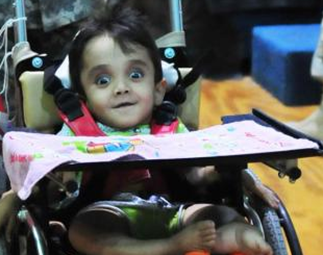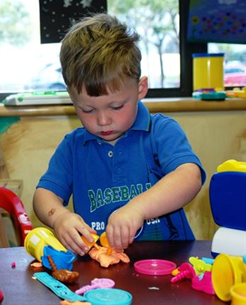11.3: Guiding Principles
The following guiding principles relate the importance of teachings knowing their children and providing instructional activities that tap into the children’s prior knowledge and experiences. Exploration in the arts is important and creative expression is more authentic when not dictated by adult expectations. Adults need to scaffold this process of exploration providing structure to activities, mediating potential problems, and inspiring and encouraging children’s progress. In this manner, adults can make the arts rewarding to all children, including those with special needs.

Beyond helping to build artistic skills, reflection and modification are important to the creative process. These opportunities in the arts also build skills such as problem solving and critical thinking; the arts bring parallel opportunities for the development of language/communication, mathematics, and the development of social and interpersonal skills. In the same vein, the arts have applications to learning in many disciplines and to aspects of social–emotional development. Observant teachers can capitalize on the arts to foster development of the self, identity, and emotional outlet.

The arts can be pursued even with meager budgets and free materials. Children benefit from high-quality learning experiences and high-quality materials— both as vehicles to encourage exploration and as symbols that demonstrate adult caring for children’s welfare.
- The arts are inclusive of and can be enjoyed by all children.
- The arts are a language that is common to all and embrace understanding between children of different linguistic, cultural, and socioeconomic backgrounds, and between children of differing abilities.
- The arts promote dispositions for learning and regular experiences in the arts during the preschool years, cultivates life-long engagement in arts-related activities.
- Children make their own meaning. Original, imaginative expression is a natural occurrence when children engage in the arts that is scaffolded by adults in an appropriate environment.
- Children are capable of creating original art in all its forms.
- Children learn about human connections, beauty, and appreciation of the arts.
- The child’s work is play and experiences in the arts should be offered in play-oriented approaches.
- Children are active learners who thrive when challenged appropriately. An effective curriculum includes a broad range of methods, experiences, and definitions of success for all children, teachers, and preschool settings.
- Arts experiences for preschoolers are more about process than product. Being engaged is what is important, not the end result or product.
- The arts reinforce the integrated nature of learning. Because children learn holistically, the arts should be presented in a way that is integrated with other domains of learning.
- Cultural competence is approached through art. The arts can help children reflect on their own cultures and origins as well as those of others.
- The arts are motivating and engaging for learners. The arts are a means to explore, take risks, communicate, and define personal perspectives and preferences regardless of culture, developmental status, or ability.
- Since children have a propensity for imitation, more than anything else, a teacher who is excited about the arts can potentially inspire children of any culture, language, or ability to become excited about art making.
- The arts provide a unique means for families to interact. They have songs, stories, games, and many other talents to share.[1]
- The California Preschool Curriculum Framework, Volume 2 by the California Department of Education is used with permission ↵

